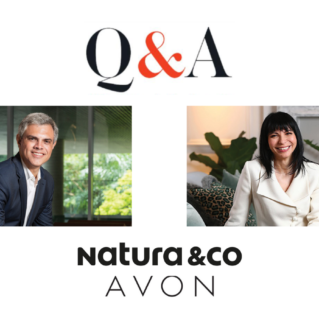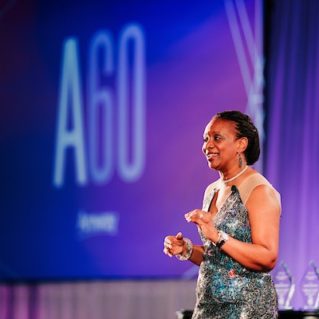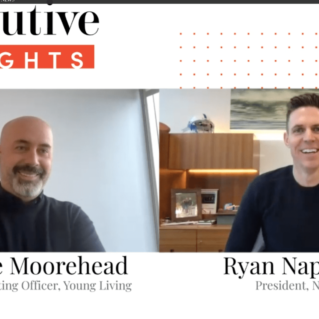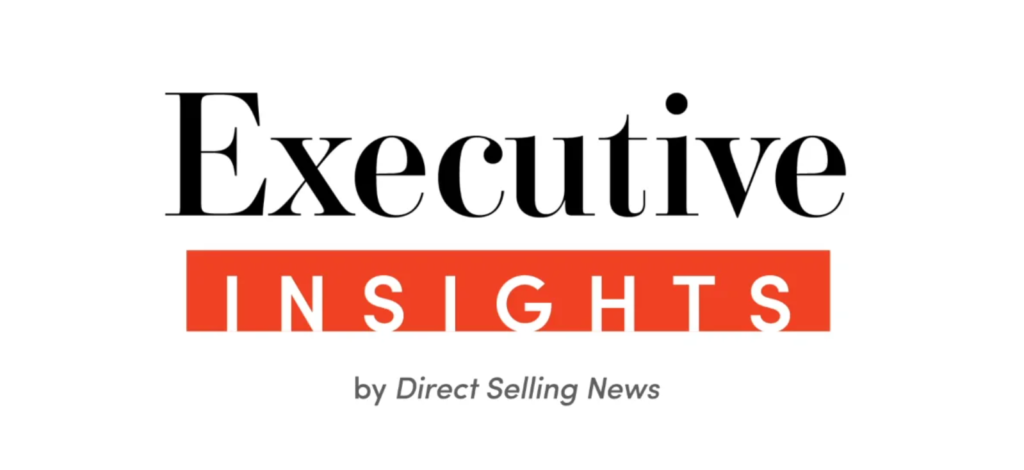
REMEMBER WHEN it was easy to network with your peers during industry events and meetings? Remember the insights and ideas that those conversations prompted? The DSN Executive Insights interview series is working to bring those priceless exchanges of stories and ideas back.
In the second interview in the series, Stuart MacMillan, President of MONAT Global, and his friend and colleague, Mark Pentecost, CEO of It Works!, discuss problems, pivots and plans.
Here is a partial look at parts of their conversation. For the entire interview you can listen to the DSN podcast or watch the interview.
STUART MACMILLAN: I have the honor and privilege of hanging out for a little while with my friend, Mark Pentecost, from It Works!. The last 18 months have been extremely interesting for both your company and ours. Where did you have to pivot? Where did you have to go, ‘Hey, we need to do this differently?’
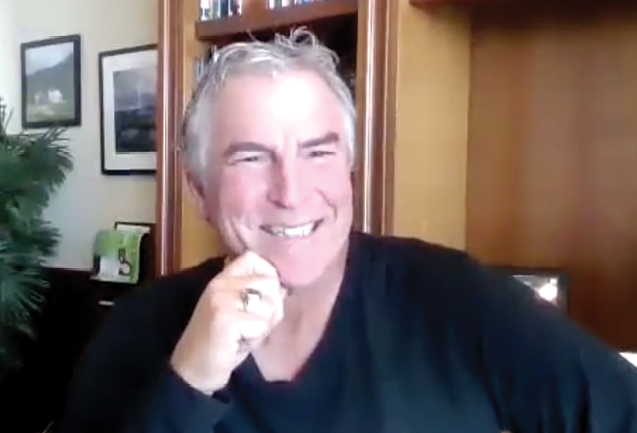
MARK PENTECOST: We didn’t expect this. We didn’t say, “Let’s go home, work from home for the next 16 months.” We thought it was just going to be for a month or two. In the beginning, it was like, “Hey, this is fun, working from home. It’s exciting. It’s something different.” But over time, different things have crept in, and I hear different words today. I hear COVID fatigue, Zoom fatigue. Some highfliers that work well by themselves, and there are people that don’t.
My background’s coaching. So, I was thinking, what if I never went to practice and just rolled the balls out and said, “Hey, guys, practice hard. I’ll be back in two hours.” And so that really got me to thinking of how do we empower our people, but how do we inspect what we expect? I heard something the other day that I really liked— “Don’t let your comfort zone dictate your destiny or your success.” And I thought, “That’s happening here. We’re getting in a comfort zone.”
The biggest challenge to me has been with changes—especially big changes. We just didn’t know what they were. I love to read, but I couldn’t pull a book out and say, “All right. What is the playbook for COVID pandemic, and you have to go home for, you don’t know how long?” We’ve just had to maneuver. Is that how you feel?
STUART: I feel the same, and I think that it’s been enlightening. I know you and I are similar. We have this sense that we need to control a lot of things and watch it, and I think, if this has done anything for me, and I’m wondering if it has for you, it’s given me a sense of, “Hey, it’s okay.” It’s that balance, right? So, it’s the tension between, ‘Yes, we still need to measure, but hey, it’s okay for them not to be under my eyes 24/7.’
MARK: Our secret sauce is the hugging and acknowledgment, and pats on the back. It’s not as easy to do that out of your home. I think team and teamwork is so important, but an organization’s success depends on strong individual performances
Recently, I was looking at the different people in the Zoom. And I’m like, “Oh, my goodness, I haven’t said good job to her, or I haven’t congratulated that person.” It really overwhelmed me on how do I show appreciation, and how do I coach someone that’s maybe underperforming or someone that is really knocking it out of the park, and I let them know, “I see you. Nice job, I really appreciate it.”
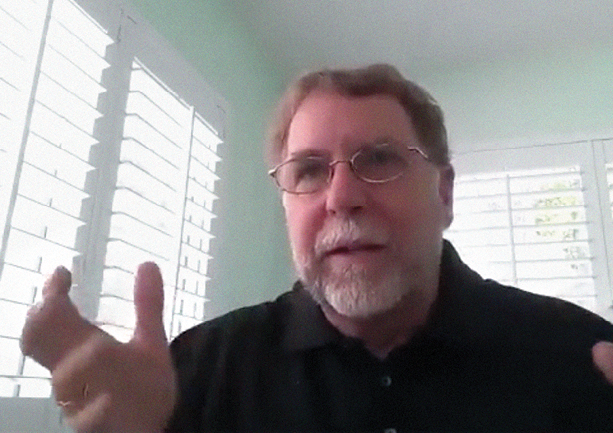
STUART: I actually had the same challenge. One of the things I would often do is walk across the parking lot to the Cooper’s Hawk Restaurant and go, “Hey, you. You know what? You’ve done a great job. Come with me.” And having not done that for a year, I realized that a piece of my management style was gone. I hadn’t replaced it with anything. So, what are you doing to combat that, in this kind of environment?
MARK: There are three things I’m focused on—boosting engagement, encouraging collaboration, and increasing morale. I wanted to make sure our field team knew how much I appreciated how they’re working through this period. And those are the three things that I realized people needed the most.
I want to acknowledge that we started opening the office on June first.
We’re working on a hybrid solution, and I want it to be led by our employees. I want them to tell me what they need to be the most efficient. The world’s never going to be the same. We’re going to go back, and it will be different. There are no rules we need to follow. How much do we need to be in the office? What departments never need to be in the office? Who needs the collaboration and people?
We’ve started opening the office, so that if you want to come into the office, you’ll be able to. We’ll be there. We’ll sanitize. We’ll keep it safe. We’ll have some rules, but we’re not going to tell you yet that you have to come back, or you have to do this.
STUART: I think we’re all facing some of those similar challenges. One thing you said that I think is really interesting is that this hybrid initiative is going to be employee led. I think what that will mean is that while we can throw out some ideas, it’s going to be unique to the company. It’s going to be unique to the personality of the company and unique to the departments. Which departments, in your mind, are the ones that really seem to be missing that collaborative, creative catalyst? Sometimes, the hallway is a catalyst for great discussion. Where do you think that’s missing?
MARK: I love marketing. I love sales. I think one of the things It Works! does well is social selling, gathering customers. We do it with Zoom, but what inspires me and really gets my creative juices going is when I’ve got five or six other people together, sometimes a little bigger, at the office, and someone goes, “Man, I got a crazy idea.” That’s usually when my antenna goes up.
That seems to be code for, “This is about to get good.” I miss that part because I’ll have some good ideas, but after some people pick holes in it or push a little bit, or, “Why not this?” We’ve tried to create that. For those who live in the area, we met outside at my house. I was amazed by what happened to a great idea when we were in the same place together. We ended up doing a promotion. And when we’re trying to duplicate that, it’s just different.
STUART: It is. It’s not quantifiable, but it absolutely is true. You sit in the same room and ideas happen. It’s hard to get the energy you have in a room of a bunch of people who are trying to think about things. To get that on Zoom is tough. Speaking of energy, so one of the things I’ve admired is your ability to transfer passion. Part of the success of It Works! is for your ability to convey passion and excitement and take things to a whole ‘nother level. How do we channel that into getting people excited about our business and what we had to offer?
MARK: What I’m realizing is that I’ve got to try and be intentional. If people are laughing and enjoying, we’re winning! Winning doesn’t mean always just the score, you’re the winner. Winning is helping people pay off debt. It’s helping people control their time through this. Winning is helping people feel accepted wherever they’re at.
STUART: Let’s talk a little bit about customers. There was a bit of a pivot from where It Works! started to say, “Hey, we’re going to focus on having products that stand-alone, that would be bought by anybody, irrespective of the channel.” You guys are doing a great job in terms of your customer-to-distributor ratio. Talk to me about your adjustments.
MARK: We battled that for quite a few years. I think in the beginning, people thought we were a little crazy. Some people actually thought, if you got a customer, you had failed because you didn’t understand the opportunity to become a part of the team. That’s just the way they’re brought up, but we could see that it’s two separate things. We had two different buckets. One bucket was a customer, and one was someone selling products for us.
The biggest change out there today is how to get a customer because people don’t watch commercials anymore. So, we have the opportunity in our industry to talk to people. We realize customers are so important, and they are the lifeblood. We get customers so well because of the interaction. And the competition now is, you believe this as I do, it’s not the other companies. The competition is Amazon.
We have a little motto—Amazon leaves a box on your front porch with a smile on it. We stay around for the hug. We got to smile, but we got to hug them.
We don’t have to convince people to get customers anymore. I think they realize that if you don’t have customers, you don’t have the lifeblood of a strong business. And today, it’s how we keep getting better at it.
STUART: Well, when you think about it, we should have an unfair advantage over the Amazons and the retailers because we’re all about relationship, right? Talk to me about compliance and the environment. How are you adapting to the new world—where it’s very difficult to actually sell the opportunity. There are so many things you can’t say. How do you get around that?
MARK: That is tough. There are some rulings lately that maybe there’s some light at the end of the tunnel, but I do feel like some of the regulations have put more strain on our channel, industry than others. Sometimes you feel like, “Here. This is a brown bag. Look at it. See what you think. I can’t say anything about it.” It’s put more on us to be sure of our products—that we can get ingredients that we can have clinicals on. I think our product team has done a great job realizing this. There are some claims right now that we’re able to say because of the clinicals. We’re being very intentional.
On the business side, we’ve got our income disclosure. There are people like, “Why do we have to do it?” Almost like raising our kids. “Why do we have to be in at curfew? Nobody else does.” My response is “I don’t pay that group, but I know I want to keep paying you. I want to make sure we have a great opportunity. And yes, it is, but we take the extra step.” We’ve added more compliance. It protects and educates us. We’re training more on what we can say or not say.
We do a lot more in training, and we try to put more time into it. That’s our reality. You got to know the rules of the game, so that you can stay in the game, and that’s what we spend time, even behind the scenes.
STUART: At the end of the day, our role is to build a long-term sustainable business for customers and our distributors, and that’s what I told our folks. I would encourage other presidents and CEOs and other leaders of organizations, let’s take the high road and keep focused.
Our role as executives in this industry is really to create that level playing field, and to fertilize it, so that everybody has a place to play and everybody has the same opportunity.
From the July 2021 issue of Direct Selling News magazine.
